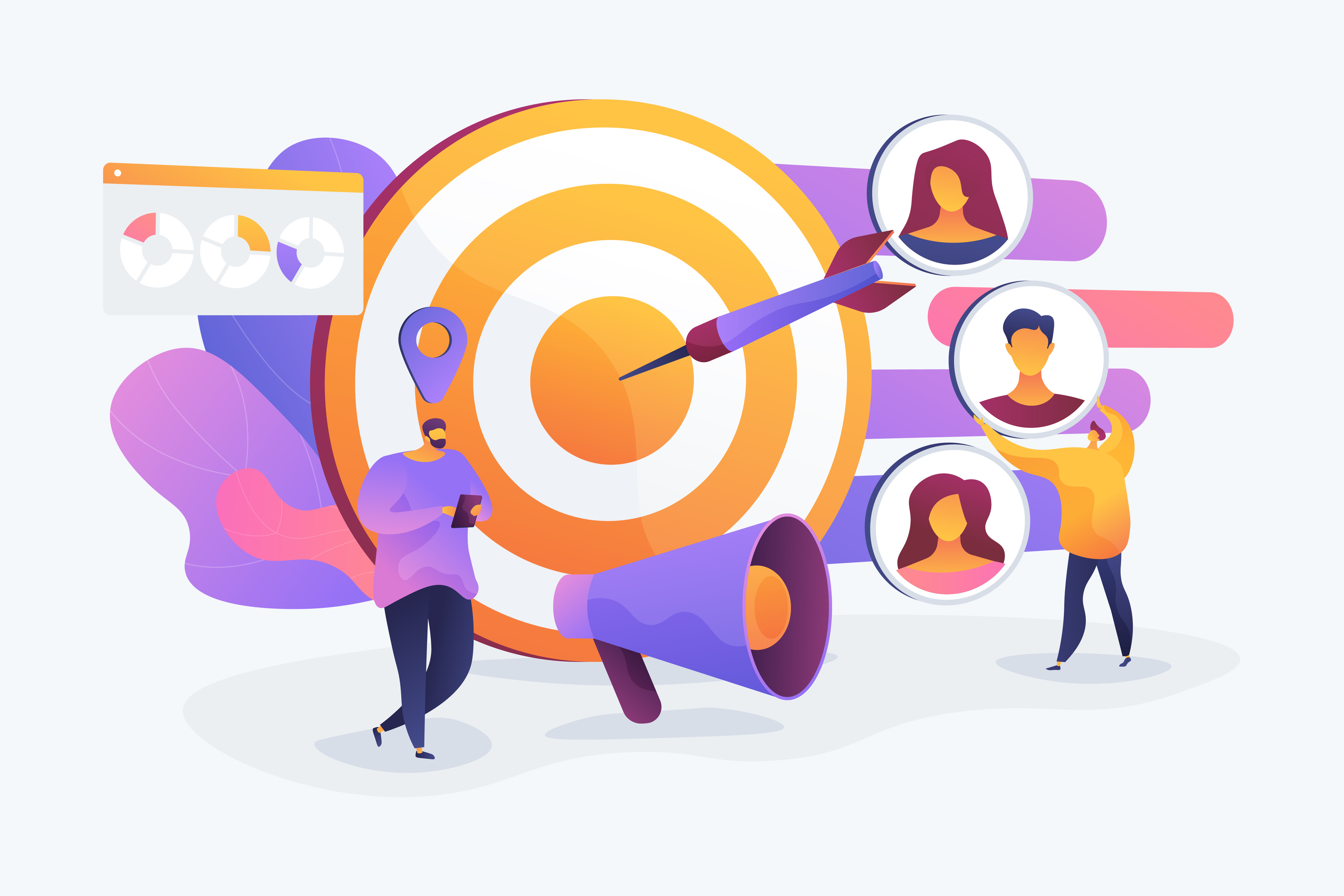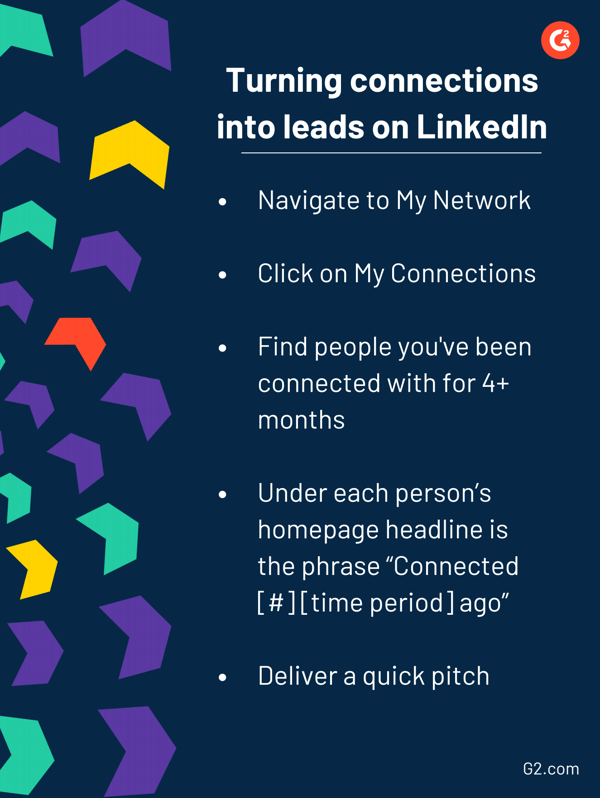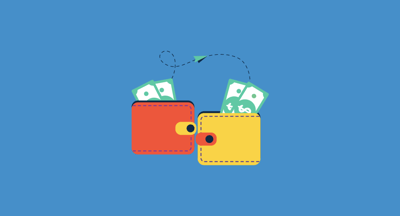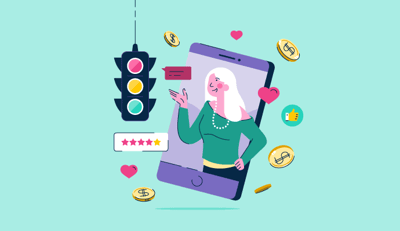January 16, 2020
 by Jean-Marc Saint Laurent / January 16, 2020
by Jean-Marc Saint Laurent / January 16, 2020

Let’s start with some honesty.
Marketing, especially on social media, is terribly frustrating at times. It seems like the rules are always changing, the “gurus” can’t agree on what our goals should be or whether we should even have goals.
Social media is a jungle. Did you know that with more than 660 million users, a single day of LinkedIn activity produces enough data to fill up your apartment in hard drives? For further context, there are over 1.2 million new data-producing social media users each day and over 100 million messages are sent via apps and SMS each minute.
Just thinking about how you’ll be able to reach your target customer in the midst of all this activity is enough to give you heart palpitations. So given all the perceived competition in the world, some marketers have opted for greater communication at the cost of human qualities, hence the “spam” we all tend to complain about. Fortunately, there are other options.
What follows are tips you can use in to create LinkedIn leads for your company without turning people off with spam. People are on social media to be social with other people. So, regardless of how technological these tips seem, they will rely on the power of regular human communication.
Perhaps you’ve heard the joke about the hipster who enters a bar then suddenly leaves 3 seconds later: “Don’t go to that bar,” she exclaims.”It’s full of hipsters!”
Being a spammer is a lot like being a hipster; no one wants to admit to being either of them, yet people say they see them all around. That’s like identifying poison ivy by waiting for the swelling rash. We can do better than that.
Before avoiding spam, we must identify what it is. To keep it simple, we can agree that something comes off as spam when it’s not steeped in the norms of human communication (i.e. sounds robotic or not natural); it demands a big commitment quickly (do this NOW!); it comes from an unfamiliar source (how did you get my email address?); it is unwanted (unsubscribe!).
Business video platform Vidyard reported that 52% of [business] viewers watch a video all the way through, regardless of the video’s length. They also found that the average length of business videos have continued to shrink each year, from 13.14 minutes in 2016 to about 4 minutes in 2018. This trend shows the increased use of personalized 1:1 video over more traditional corporate videos.
Not only does creating personalized videos for leads allow for more norms of human communication to shine through, such as body language, tonality, and words but paired with tracking provided in most platforms like Vidyard, you get the added benefit of implied consent.
Similar to how behavioral targeting allows marketers and sales professionals to engage with leads only when they have shown a certain interest, with personalized video, you can engage only with leads willing to watch your video. This signals implied consent to continue the conversation. Engaging with people you aren’t sure want to hear from you or your brand isn’t a great feeling and tends to come off as spammy.
Your current connections would be likely to engage with your videos at a higher rate since they already know who you are. Doing personalized video social selling can take 30 minutes to 1 hour each day given your list of potential leads.
Do the following checks before choosing to go the personalized video route.
| Is this is a high-value prospect? |
| Are they a likely decision-maker with a budget? |
| Based on historical data, are they are likely to convert? |
| Has their profile has been friendly in the past? |
Like discovering a treasure map once lost in the thicket, the hidden benefit of posting to LinkedIn regularly is exciting when you realize it. Regular posting reactivates outbound leads while generating inbound leads. The multitouch nature of social media makes this possible.
According to data analysis from Jeb Blount, it takes:
There are few places where you can share your message up to 50 times and not become a nuisance. If social media had a superpower, it would be that it allows you to stay in front of your target customer dozens of times regardless of where they are in the buying journey.
Common knowledge tells us multiple touches via LinkedIn work to serve our brain’s tendency toward availability bias, where the ideas we come up with are heavily-swayed by the information and content that are readily available to us.
You’ve experienced this when you have been thinking about a certain purchase for some time and one specific brand seems to come up over and over. When this happens enough, our shortcut-seeking brains start seeing the most available option as the only reasonable option.
Thanks to Robert Cialdini, we can also see that this high-visibility on LinkedIn would set off the psychological trigger of consensus. Consensus is what FOMO (fear of missing out) and social proof are all about. It convinces us that something our peers like is great for us as well.
The more people in your network that react and engage with your post, the more people see it, and the more they will react and engage with it. This creates a sort of self-perpetuating cycle of success.
When it comes to exactly what you should post, healthy variety is recommended. Helpful original information in your field of expertise, positive quotes and stories, and related news in your field typically make great posts.
How do you get sales calls with LinkedIn lead generation in 48 hours without having to connect with new people? It isn’t magic; it just requires a little pacing.
Everyone talks about how many people they’ve connected with on LinkedIn, yet these numbers have done nothing for their goals, sales, and overall business. When you have the connections, you need to know how to leverage them. Otherwise, it doesn’t matter if you have 5,000 connections: the number doesn’t equal the value of your relationships.
Follow this short step-by-step guide if you want to turn LinkedIn connections into leads.

When you’re looking through your connections, scroll until you’ve found people you’ve known for at least four months. In the case of LinkedIn connections, still being connected after months tends to dull resistance to contact. People figure that if we’re still connected with them, we must be good people to know.
Check out this template for a way to reach out to people you’ve been connected with on LinkedIn for some time.
Hi [First Name].
It dawned on me that we've been connected for months and I've never really learned about your business or told you about the work I do with [Your Business Focus]. Maybe we could get on the phone soon and see how we might help each other?
Let me know.
[Your name]
This pitch works for a few reasons: it’s not pushy or salesy; it seeks a mutual benefit and is not one-sided; and it’s short and easy to read – no jargon needed. Non-threatening is the way to go.
Potential frustrations aside, LinkedIn can be a powerful part of your lead generation strategy if you use it wisely. When you forgo spam and use personalized strategies that rely on honest human communication instead, you not only have the chance to make a sale but establish a valuable relationship that bears future fruit.
Looking for other ways to maximize your LinkedIn marketing strategy? Check out our full guide and see how you can get more leads and enhance your social presence.
Jean-Marc Saint Laurent is the Founder of Saint313, a B2B Lead Generation Consulting firm helping companies get on the phone with future clients. He’s gotten sales professionals valuable sales calls and opportunities with decision-makers at top companies such as Zillow, Hyundai, AT&T, Wells Fargo, and more using LinkedIn.
Earlier this year, I had the pleasure of sitting down with experienced tech and marketing...
 by Christine Li
by Christine Li
Product launches. Webinars. Co-marketing campaigns. Email newsletters. None of these marketing...
 by Lauren Pope
by Lauren Pope
Communication creates communities.
 by Yashwathy Marudhachalam
by Yashwathy Marudhachalam
Earlier this year, I had the pleasure of sitting down with experienced tech and marketing...
 by Christine Li
by Christine Li
Communication creates communities.
 by Yashwathy Marudhachalam
by Yashwathy Marudhachalam


